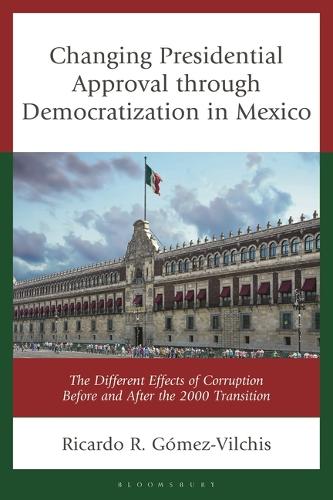
Changing Presidential Approval through Democratization in Mexico: The Different Effects of Corruption Before and After the 2000 Transition
(Hardback)
Publishing Details
Changing Presidential Approval through Democratization in Mexico: The Different Effects of Corruption Before and After the 2000 Transition
By (Author) Ricardo R. Gmez-Vilchis
Bloomsbury Publishing PLC
Rowman & Littlefield Publishers
18th September 2025
United States
Classifications
Professional and Scholarly
Non Fiction
Physical Properties
Hardback
216
Width 152mm, Height 229mm
Description
This book analyzes the trends of democratic transition in Mexico in relationship to presidential approval and argues that democratization alters approval in this form: after a democratic transition, corruption's effect on support for the president becomes stronger.
During the process of democratic transition, corruption matters a lot for presidential approval because a negative performance of dealing with corruption leads to unpopularity. The temptation for an authoritarian return can eventually emerge in the political arena. Changing Presidential Approval through Democratization in Mexico examines approval at the individual, aggregate, and hierarchical levels by using extensive data. This book includes survey data with samples between 1,000 and 3,000 respondents, which are representative at the national level. The analysis employs sixty-nine surveys from 1990 to 2018, more than 97,300 observations and includes a database of corruption provided by the Ministry of the Public Function in Mexico with 633,500 state complaints against government employees. The quality of the data allows the author to offer reliable and valid analysis with the focus on presidential approval, democratization and corruption.
Author Bio
Ricardo R. Gmez-Vilchis is an independent scholar of political science. He was awarded with the Fulbright Garcia-Robles Scholarship as a Visiting Scholar at the University of Maryland.
